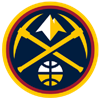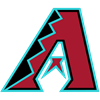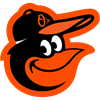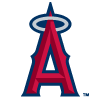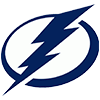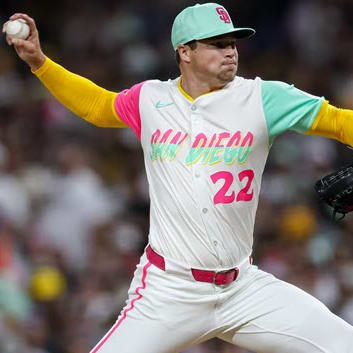Players' average draft position shifts throughout the early part of the offseason, but movement really picks up once spring training games begin. Much of that movement is negative, as players get hurt (or discover they're not fully over injuries from last season) much more frequently in camp than they do while sitting on the couch over the winter.
But plenty of movement is positive. Sometimes that's a result of managers confirming that a player will in fact make the Opening Day roster, earn a rotation spot, or serve as closer. Sometimes it's a result of a strong start to spring which makes the eventual confirmation of a fantasy-relevant Opening Day role seem like merely a formality.
Still other players move not because of any press conference or spring stat line but simply due to fantasy players sharing opinions with each other, either in private conversations or through podcasts, articles and radio shows. Typically, that takes the form of a hype machine which sends a young player shooting up the board, but occasionally it's the opposite, with a player's past injuries being collectively forgotten and then remembered again as draft season picks up.
For the first MLB Barometer of the season, I've compared each players' ADP prior to the start of spring games (Feb. 22) with his ADP since those games began. In contrast to previous seasons, I'm using just the ADP from the RotoWire Online Championship rather than using overall NFBC ADP. The purpose is to avoid any distortions
Players' average draft position shifts throughout the early part of the offseason, but movement really picks up once spring training games begin. Much of that movement is negative, as players get hurt (or discover they're not fully over injuries from last season) much more frequently in camp than they do while sitting on the couch over the winter.
But plenty of movement is positive. Sometimes that's a result of managers confirming that a player will in fact make the Opening Day roster, earn a rotation spot, or serve as closer. Sometimes it's a result of a strong start to spring which makes the eventual confirmation of a fantasy-relevant Opening Day role seem like merely a formality.
Still other players move not because of any press conference or spring stat line but simply due to fantasy players sharing opinions with each other, either in private conversations or through podcasts, articles and radio shows. Typically, that takes the form of a hype machine which sends a young player shooting up the board, but occasionally it's the opposite, with a player's past injuries being collectively forgotten and then remembered again as draft season picks up.
For the first MLB Barometer of the season, I've compared each players' ADP prior to the start of spring games (Feb. 22) with his ADP since those games began. In contrast to previous seasons, I'm using just the ADP from the RotoWire Online Championship rather than using overall NFBC ADP. The purpose is to avoid any distortions that occur from different types of leagues being popular at different times of the winter. The tradeoff is that the ADP in this article is collected from a relatively small pool of leagues — 68 in total, compared to 721 if I used overall NFBC ADP. Let me know in the comments which approach you think is more useful.
We'll move onto the top risers and fallers at each position group in a second, but first, a quick look at how the first four rounds have changed.
First Four Rounds
Here is what the first four rounds of the RotoWire Online Championship looked like as of Feb. 21:

And here's what they look like since Feb. 22:

There's only one change in the draft order within the first round, with Spencer Strider moving past Fernando Tatis Jr. into seventh, though it's worth noting that Corbin Carroll's ADP jumped by over a full spot even if he still edges out Mookie Betts for fourth. Movement picks up in the second round, with Gerrit Cole and Bryce Harper both jumping up two spots and Jose Ramirez falling by three places. In the third round, the most notable thing may be that Elly De La Cruz hasn't budged at all, despite the fact that experienced drafters have largely shied away from paying full price for him. Later in that round, we see big rises by Michael Harris and Yoshinobu Yamamoto. The fourth round sees Bo Bichette and Tarik Skubal move up three places while Jose Altuve drops by the same number.
Risers
Note: all players in this section are ranked by percentage of possible spots gained rather than raw number of spots gained, as it gets easier to move past large numbers of players the later you get into the draft.
Catcher
| Player | Team | Early ADP | Recent ADP | % of Possible Rise |
|---|---|---|---|---|
| Will Smith | LAD | 89.3 | 83.2 | 6.9% |
| Logan O'Hoppe | LAA | 167.6 | 159.0 | 5.2% |
| Cal Raleigh | SEA | 146.5 | 139.9 | 4.5% |
| J.T. Realmuto | PHI | 80.7 | 77.7 | 3.7% |
| Francisco Alvarez | NYM | 152.0 | 146.8 | 3.5% |
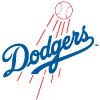 Will Smith, Dodgers: No specific recent news seems to be driving Smith's price up; he didn't have any lingering injuries which he needed to demonstrate were behind him, and his role hasn't changed in any way. His role will probably be smaller with the Dodgers this season than we're used to, as the extra starts at designated hitter which helped him to 1,132 plate appearances over the last two years (second among all catchers) won't be available with Shohei Ohtani in town. But drafters have nevertheless been selecting Smith a bit earlier in recent weeks, and it's possible Ohtani has something to do with it. We have Smith projected to bat cleanup, and it's the best cleanup spot in all of baseball, falling right behind a trio of fantasy first-rounders in Mookie Betts, Ohtani and Freddie Freeman. Maybe drafters are looking at that situation and deciding it's worth paying up for an early catcher, even if Smith may now come with a more typical catcher's workload. It's hard to complain too much about what should only be a relatively modest drop in playing time for an excellent hitter in an ideal lineup spot.
Will Smith, Dodgers: No specific recent news seems to be driving Smith's price up; he didn't have any lingering injuries which he needed to demonstrate were behind him, and his role hasn't changed in any way. His role will probably be smaller with the Dodgers this season than we're used to, as the extra starts at designated hitter which helped him to 1,132 plate appearances over the last two years (second among all catchers) won't be available with Shohei Ohtani in town. But drafters have nevertheless been selecting Smith a bit earlier in recent weeks, and it's possible Ohtani has something to do with it. We have Smith projected to bat cleanup, and it's the best cleanup spot in all of baseball, falling right behind a trio of fantasy first-rounders in Mookie Betts, Ohtani and Freddie Freeman. Maybe drafters are looking at that situation and deciding it's worth paying up for an early catcher, even if Smith may now come with a more typical catcher's workload. It's hard to complain too much about what should only be a relatively modest drop in playing time for an excellent hitter in an ideal lineup spot.
| Player | Team | Pos | Early ADP | Recent ADP | % of Possible Rise |
|---|---|---|---|---|---|
| Anthony Rizzo | NYY | 1B | 302.4 | 269.7 | 10.8% |
| Austin Riley | ATL | 3B | 19.8 | 18.3 | 7.9% |
| Vladimir Guerrero Jr. | TOR | 1B | 33.4 | 30.9 | 7.8% |
| Cody Bellinger | CHC | 1B/OF | 62.0 | 57.7 | 6.9% |
| Maikel Garcia | KCR | 3B | 236.0 | 221.2 | 6.3% |
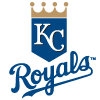 Maikel Garcia, Royals: Garcia is one of this year's most popular sleepers, though the fact that he's risen a full round in less than two weeks indicates he probably isn't sleeping any more. Garcia played 123 games as a rookie last year and showed a lot of promising elements to his game. He combined an excellent hard-hit rate (50.6 percent) with a perfectly acceptable strikeout rate (22.6 percent), and he paired that bat with good speed (23 steals). He's even a strong defender at third base, having been pushed off his natural position of shortstop by the presence of Bobby Witt Jr. So why is a 24-year-old with such a complete skill set going so late in drafts? The answer lies in a stat I've left out to this point: for all his hard contact, he managed just four home runs. It wasn't a fluke, either. His swing simply isn't geared to lift the ball, as his 27.4 percent flyball rate ranked seventh-lowest among qualified hitters. He also doesn't pull the ball, with his 33.1 percent pull rate ranking 14th-lowest among the same group. It will probably take a swing change for Garcia to turn his readily apparent strength into home runs. Alternatively, he could keep hitting it on the ground but make a bit more contact and start to look like Yandy Diaz with speed, which wouldn't be a bad outcome either.
Maikel Garcia, Royals: Garcia is one of this year's most popular sleepers, though the fact that he's risen a full round in less than two weeks indicates he probably isn't sleeping any more. Garcia played 123 games as a rookie last year and showed a lot of promising elements to his game. He combined an excellent hard-hit rate (50.6 percent) with a perfectly acceptable strikeout rate (22.6 percent), and he paired that bat with good speed (23 steals). He's even a strong defender at third base, having been pushed off his natural position of shortstop by the presence of Bobby Witt Jr. So why is a 24-year-old with such a complete skill set going so late in drafts? The answer lies in a stat I've left out to this point: for all his hard contact, he managed just four home runs. It wasn't a fluke, either. His swing simply isn't geared to lift the ball, as his 27.4 percent flyball rate ranked seventh-lowest among qualified hitters. He also doesn't pull the ball, with his 33.1 percent pull rate ranking 14th-lowest among the same group. It will probably take a swing change for Garcia to turn his readily apparent strength into home runs. Alternatively, he could keep hitting it on the ground but make a bit more contact and start to look like Yandy Diaz with speed, which wouldn't be a bad outcome either.
Middle Infield
| Player | Team | Pos | Early ADP | Recent ADP | % of Possible Rise |
|---|---|---|---|---|---|
| Oneil Cruz | PIT | SS | 66.3 | 60.9 | 8.2% |
| Anthony Volpe | NYY | SS | 141.5 | 130.3 | 7.9% |
| Gleyber Torres | NYY | 2B | 87.2 | 80.6 | 7.6% |
| Jackson Merrill | SDP | SS | 360.2 | 333.2 | 7.5% |
| Gavin Lux | LAD | 2B/OF | 280.9 | 261.4 | 7.0% |
 Jackson Merrill, Padres: Merrill's ADP in the table above is somewhat deceptive; only 360 players are drafted in a RotoWire Online Championship league, so anyone who goes undrafted is treated as if they were drafted 361st. A better way to phrase how far he's shot up the draft board is that he was taken in five percent of early drafts and 65 percent of recent ones. That's because the Padres gave him an outfielder's glove this spring in an effort to see whether he's a better candidate than the current set of uninspiring options fighting for time in left and center, a group which includes Jurickson Profar, Jose Azocar, Oscar Mercado and Tucupita Marcano. Merrill is a 20-year-old with no experience at Triple-A and just 46 games at Double-A, where he had an unremarkable 104 wRC+. There's every chance he doesn't turn out to be an option until the second half of the season or maybe even 2025. But Merrill, who struck out just 12.1 percent of the time last season, is also a fast-rising prospect with a very good hit tool. That's the sort of prospect it makes sense to take a chance on at the tail end of a draft, when it doesn't hurt to drop him if he fails to make the roster.
Jackson Merrill, Padres: Merrill's ADP in the table above is somewhat deceptive; only 360 players are drafted in a RotoWire Online Championship league, so anyone who goes undrafted is treated as if they were drafted 361st. A better way to phrase how far he's shot up the draft board is that he was taken in five percent of early drafts and 65 percent of recent ones. That's because the Padres gave him an outfielder's glove this spring in an effort to see whether he's a better candidate than the current set of uninspiring options fighting for time in left and center, a group which includes Jurickson Profar, Jose Azocar, Oscar Mercado and Tucupita Marcano. Merrill is a 20-year-old with no experience at Triple-A and just 46 games at Double-A, where he had an unremarkable 104 wRC+. There's every chance he doesn't turn out to be an option until the second half of the season or maybe even 2025. But Merrill, who struck out just 12.1 percent of the time last season, is also a fast-rising prospect with a very good hit tool. That's the sort of prospect it makes sense to take a chance on at the tail end of a draft, when it doesn't hurt to drop him if he fails to make the roster.
Outfield
| Player | Team | Pos | Early ADP | Recent ADP | % of Possible Rise |
|---|---|---|---|---|---|
| Wyatt Langford | TEX | OF | 149.2 | 114.3 | 23.6% |
| Michael Harris II | ATL | OF | 34.0 | 28.0 | 18.3% |
| Jarren Duran | BOS | OF | 162.1 | 139.7 | 13.9% |
| Kris Bryant | COL | OF | 267.7 | 240.9 | 10.0% |
| Tyler O'Neill | BOS | OF | 218.5 | 197.7 | 9.6% |
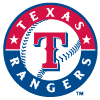 Wyatt Langford, Rangers: Langford is the fastest riser in the entire league at the moment, and he's probably not done rising. In an article from a few days before spring play began, I predicted Langford would settle in the 100-110 range. He's at 114.3 since Feb. 22, but if you zoom in and look at only drafts which have finished since March 1, his ADP rises to 100.5. Langford is incredibly talented, but his initial draft price was held back by worries that the Rangers might look at a player who has played just 44 professional games and decide that he needed a bit more seasoning in the minors. That's still a possibility, and the "working on his defense" excuse wouldn't even be a lie in his case, as his bat is well ahead of his glove. On the other hand, this is the defending champions we're talking about, a team which should want its best lineup on the field from day one. Additionally, the Rangers lack an obvious alternative at designated hitter and may be without Corey Seager (groin) and perhaps Josh Jung (calf) to start the season. You could hardly ask for the incentives to line up better for an Opening Day call-up, and Langford has done everything he can to earn that chance, homering three times with a 1.167 OPS in his first seven spring games.
Wyatt Langford, Rangers: Langford is the fastest riser in the entire league at the moment, and he's probably not done rising. In an article from a few days before spring play began, I predicted Langford would settle in the 100-110 range. He's at 114.3 since Feb. 22, but if you zoom in and look at only drafts which have finished since March 1, his ADP rises to 100.5. Langford is incredibly talented, but his initial draft price was held back by worries that the Rangers might look at a player who has played just 44 professional games and decide that he needed a bit more seasoning in the minors. That's still a possibility, and the "working on his defense" excuse wouldn't even be a lie in his case, as his bat is well ahead of his glove. On the other hand, this is the defending champions we're talking about, a team which should want its best lineup on the field from day one. Additionally, the Rangers lack an obvious alternative at designated hitter and may be without Corey Seager (groin) and perhaps Josh Jung (calf) to start the season. You could hardly ask for the incentives to line up better for an Opening Day call-up, and Langford has done everything he can to earn that chance, homering three times with a 1.167 OPS in his first seven spring games.
Starting Pitcher
| Player | Team | Early ADP | Recent ADP | % of Possible Rise |
|---|---|---|---|---|
| Chris Sale | ATL | 132.6 | 107.9 | 18.8% |
| Cole Ragans | KCR | 104.0 | 84.8 | 18.7% |
| Yoshinobu Yamamoto | LAD | 41.1 | 34.3 | 17.0% |
| Spencer Strider | ATL | 7.9 | 6.8 | 16.0% |
| Carlos Rodon | NYY | 144.3 | 125.9 | 12.8% |
 Cole Ragans, Royals: Ragans' draft price will either shock you or make perfect sense, depending on your approach to pitching. If you prefer players who are good over longer stretches, you might wonder why a pitcher who was never an elite prospect and who had a 5.32 ERA and 1.45 WHIP in 64.1 career innings with the Rangers is being considered anywhere the top-100, regardless of how good he looked after being dealt to the Royals last July. If you're willing to buy into an excellent short sample, especially when it coincides with a change in scenery and the addition of a new pitch (a slider in this case), even Ragans' elevated recent price may seem reasonable. In his 12 starts for Kansas City, Ragans struck out 31.1 percent of batters en route to a 2.64 ERA and 1.07 WHIP. The only real concern over that stretch was a 9.4 percent walk rate, and while that's not terribly high, it's also not new, as he had a 9.6 percent mark over the last four years in the minors. Still, the current version of Ragans is an excellent one even with that minor blemish, and if you're willing to buy in after just 12 starts (plus five more scoreless innings to start this spring), he's worth considering even at his new price.
Cole Ragans, Royals: Ragans' draft price will either shock you or make perfect sense, depending on your approach to pitching. If you prefer players who are good over longer stretches, you might wonder why a pitcher who was never an elite prospect and who had a 5.32 ERA and 1.45 WHIP in 64.1 career innings with the Rangers is being considered anywhere the top-100, regardless of how good he looked after being dealt to the Royals last July. If you're willing to buy into an excellent short sample, especially when it coincides with a change in scenery and the addition of a new pitch (a slider in this case), even Ragans' elevated recent price may seem reasonable. In his 12 starts for Kansas City, Ragans struck out 31.1 percent of batters en route to a 2.64 ERA and 1.07 WHIP. The only real concern over that stretch was a 9.4 percent walk rate, and while that's not terribly high, it's also not new, as he had a 9.6 percent mark over the last four years in the minors. Still, the current version of Ragans is an excellent one even with that minor blemish, and if you're willing to buy in after just 12 starts (plus five more scoreless innings to start this spring), he's worth considering even at his new price.
Relief Pitcher
| Player | Team | Early ADP | Recent ADP | % of Possible Rise |
|---|---|---|---|---|
| Will Smith | KCR | 319.4 | 277.8 | 13.1% |
| Evan Phillips | LAD | 101.8 | 93.9 | 7.8% |
| Clay Holmes | NYY | 117.1 | 108.2 | 7.7% |
| Ryan Helsley | STL | 109.2 | 103.4 | 5.3% |
| Andres Munoz | SEA | 90.7 | 87.4 | 3.7% |
 Evan Phillips, Dodgers: Manager Dave Roberts confirmed shortly before spring games began that Phillips would get "the brunt" of the Dodgers' save chances, which was apparently all drafters needed to move the reliever up half a round. It's unclear precisely what a "brunt" looks like, but it might look a lot like how the Dodgers' bullpen looked last season, when Phillips earned 24 of the team's 44 saves and no one else earning more than seven. That save total merely tied him for 18th in the league, and if Roberts' word choice indicates we're in for more of the same this year with the team preferring Phillips but not letting him monopolize the ninth inning, it's hard to see him finishing much higher than that this year. Nevertheless, he's caught a bit of helium along with several other closers in his part of the draft, with the whole group inching closer to Paul Sewald (then 90.7, now 90.8) and Alexis Diaz (then 80.8, now 83.1). Of the 111 relievers who have thrown at least 100 innings over the last two seasons, Phillips ranks first in ERA (1.59) and WHIP (0.80), so he's an attractive choice if you're fine with what could be a mediocre saves total.
Evan Phillips, Dodgers: Manager Dave Roberts confirmed shortly before spring games began that Phillips would get "the brunt" of the Dodgers' save chances, which was apparently all drafters needed to move the reliever up half a round. It's unclear precisely what a "brunt" looks like, but it might look a lot like how the Dodgers' bullpen looked last season, when Phillips earned 24 of the team's 44 saves and no one else earning more than seven. That save total merely tied him for 18th in the league, and if Roberts' word choice indicates we're in for more of the same this year with the team preferring Phillips but not letting him monopolize the ninth inning, it's hard to see him finishing much higher than that this year. Nevertheless, he's caught a bit of helium along with several other closers in his part of the draft, with the whole group inching closer to Paul Sewald (then 90.7, now 90.8) and Alexis Diaz (then 80.8, now 83.1). Of the 111 relievers who have thrown at least 100 innings over the last two seasons, Phillips ranks first in ERA (1.59) and WHIP (0.80), so he's an attractive choice if you're fine with what could be a mediocre saves total.
Fallers
Note: the players in this section are ranked by % Drop, i.e. their number of spots dropped divided by their initial ADP, rather than their raw number of spots dropped.
Catcher
| Player | Team | Early ADP | Recent ADP | % Drop |
|---|---|---|---|---|
| Ryan Jeffers | MIN | 248.9 | 267.9 | 7.6% |
| Austin Wells | NYY | 332.2 | 349.5 | 5.2% |
| Yainer Diaz | HOU | 102.9 | 106.1 | 3.1% |
| Bo Naylor | CLE | 170.9 | 174.9 | 2.3% |
| Jake Rogers | DET | 343.5 | 351.0 | 2.2% |
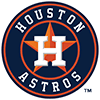 Yainer Diaz, Astros: I see no transaction-related reason for any of these players to fall, and the only injury between them was a minor back issue for Naylor which he seems to be past. I'll use this space to talk about Diaz, the catcher whose fall I most agree with. There's a lot to like about the 25-year-old backstop, who hit .282/.308/.538 with 23 homers in 377 trips to the plate as a rookie last season. He made a good amount of contact (19.6 percent strikeout rate), and that contact was high-quality (12.2 percent barrel rate). So why am I out on him at cost, and why are other drafters seemingly feeling the same way? If I'm going to pass on the proven and talented players who are still available in this range just to help fill out my catcher spots, I better be very sure I'm not going to waste the pick. While the upside with Diaz is high — he just has to do what he did last year, but without Martin Maldonado in the way — there's real downside, too. His 2.9 percent walk rate was the lowest in baseball (min. 350 plate appearances), and it came with a first-percentile chase rate. That's the type of hitter who sometimes gets found out in year two, and his 1-for-14 performance in the playoffs hints in that direction. On a contending team with the perfectly competent Victor Caratini backing him up, there may not be much patience for Diaz (who's also a poor framer with no speed) if his own lack of patience starts to be exploited by opposing pitchers.
Yainer Diaz, Astros: I see no transaction-related reason for any of these players to fall, and the only injury between them was a minor back issue for Naylor which he seems to be past. I'll use this space to talk about Diaz, the catcher whose fall I most agree with. There's a lot to like about the 25-year-old backstop, who hit .282/.308/.538 with 23 homers in 377 trips to the plate as a rookie last season. He made a good amount of contact (19.6 percent strikeout rate), and that contact was high-quality (12.2 percent barrel rate). So why am I out on him at cost, and why are other drafters seemingly feeling the same way? If I'm going to pass on the proven and talented players who are still available in this range just to help fill out my catcher spots, I better be very sure I'm not going to waste the pick. While the upside with Diaz is high — he just has to do what he did last year, but without Martin Maldonado in the way — there's real downside, too. His 2.9 percent walk rate was the lowest in baseball (min. 350 plate appearances), and it came with a first-percentile chase rate. That's the type of hitter who sometimes gets found out in year two, and his 1-for-14 performance in the playoffs hints in that direction. On a contending team with the perfectly competent Victor Caratini backing him up, there may not be much patience for Diaz (who's also a poor framer with no speed) if his own lack of patience starts to be exploited by opposing pitchers.
Corner Infield
| Player | Team | Pos | Early ADP | Recent ADP | % Drop |
|---|---|---|---|---|---|
| Josh Jung | TEX | 3B | 117.0 | 144.8 | 24.0% |
| Jose Ramirez | CLE | 3B | 14.3 | 16.5 | 17.0% |
| Royce Lewis | MIN | 3B | 44.4 | 49.3 | 11.3% |
| Christian Walker | ARI | 1B | 90.5 | 97.7 | 8.1% |
| Junior Caminero | TBR | 3B | 228.8 | 246.0 | 7.6% |
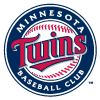 Royce Lewis, Twins: It's hard to think of a specific reason why Lewis would have dropped in recent weeks. He's the sort of young, exciting player who often gets even more hype this time of year and rises up the board. He has to be considered an injury-prone player, having twice torn his right ACL, but there haven't been any whispers of poor health this spring which would make drafters worry. Perhaps drafters are simply a bit less willing to take a chance on players with his health track record as we get closer to Opening Day? Perhaps it's also the fact that all his injuries have limited him to just 70 career major-league games, which adds a small-sample caveat to his excellent .307/.364/.549 slash line, though why that should matter more in March than in January is unclear. Maybe it was the recent news that Carlos Santana could be the everyday first baseman, pushing Alex Kirilloff to designated hitter and potentially meaning that the Twins elect to give Lewis more true days off instead of partial rests as a DH. Whatever the reason, it's now slightly easier to draft Lewis in a RotoWire Online Championship, which is great news for anyone who likes drafting young, five-tool players.
Royce Lewis, Twins: It's hard to think of a specific reason why Lewis would have dropped in recent weeks. He's the sort of young, exciting player who often gets even more hype this time of year and rises up the board. He has to be considered an injury-prone player, having twice torn his right ACL, but there haven't been any whispers of poor health this spring which would make drafters worry. Perhaps drafters are simply a bit less willing to take a chance on players with his health track record as we get closer to Opening Day? Perhaps it's also the fact that all his injuries have limited him to just 70 career major-league games, which adds a small-sample caveat to his excellent .307/.364/.549 slash line, though why that should matter more in March than in January is unclear. Maybe it was the recent news that Carlos Santana could be the everyday first baseman, pushing Alex Kirilloff to designated hitter and potentially meaning that the Twins elect to give Lewis more true days off instead of partial rests as a DH. Whatever the reason, it's now slightly easier to draft Lewis in a RotoWire Online Championship, which is great news for anyone who likes drafting young, five-tool players.
Middle Infield
| Player | Team | Pos | Early ADP | Recent ADP | % Drop |
|---|---|---|---|---|---|
| Corey Seager | TEX | SS | 26.4 | 34.1 | 28.9% |
| Jonathan India | CIN | 2B | 249.4 | 317.7 | 27.4% |
| Matt McLain | CIN | 2B/SS | 65.7 | 78.3 | 19.2% |
| Jordan Lawlar | ARI | SS | 302.5 | 336.3 | 11.2% |
| Zack Gelof | OAK | 2B | 134.0 | 145.4 | 8.5% |
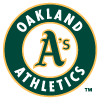 Zack Gelof, Athletics: The first three names on the above table dropped due to injury news, while Lawlar dropped due to the news that he's unlikely to break camp in the majors. None of that applies to Gelof, who seems to be dropping simply because drafters are looking elsewhere. Gelof burst onto the scene with a .267/.337/.504 slash line (133 wRC+) as a rookie, hitting 14 homers and stealing 14 bases in 300 plate appearances. That round number makes it tempting to double Gelof's homers and steals and say that he has a legitimate shot at a 30/30 season in his sophomore campaign, though the projections say that a 20/20 season is more realistic. Gelof will be fighting uphill against the worst combination of home park and surrounding lineup in the league, and he'll also need to make sure his contact concerns don't become a problem. His 27.3 percent strikeout rate in his debut was elevated but not quite a red flag, though the fact that it's a near match for his 27.0 percent career mark in the minors means it's something that probably won't go away soon. He's still an interesting upside target, though, and his risk becomes easier to tolerate the more he slips down draft boards.
Zack Gelof, Athletics: The first three names on the above table dropped due to injury news, while Lawlar dropped due to the news that he's unlikely to break camp in the majors. None of that applies to Gelof, who seems to be dropping simply because drafters are looking elsewhere. Gelof burst onto the scene with a .267/.337/.504 slash line (133 wRC+) as a rookie, hitting 14 homers and stealing 14 bases in 300 plate appearances. That round number makes it tempting to double Gelof's homers and steals and say that he has a legitimate shot at a 30/30 season in his sophomore campaign, though the projections say that a 20/20 season is more realistic. Gelof will be fighting uphill against the worst combination of home park and surrounding lineup in the league, and he'll also need to make sure his contact concerns don't become a problem. His 27.3 percent strikeout rate in his debut was elevated but not quite a red flag, though the fact that it's a near match for his 27.0 percent career mark in the minors means it's something that probably won't go away soon. He's still an interesting upside target, though, and his risk becomes easier to tolerate the more he slips down draft boards.
Outfield
| Player | Team | Pos | Early ADP | Recent ADP | % Drop |
|---|---|---|---|---|---|
| Corbin Carroll | ARI | OF | 4.4 | 5.5 | 24.9% |
| Josh Lowe | TBR | OF | 72.6 | 82.5 | 13.6% |
| Nolan Jones | COL | OF | 50.1 | 55.1 | 10.0% |
| Ronald Acuna Jr. | ATL | OF | 1.0 | 1.1 | 9.0% |
| Tommy Edman | STL | 2B/SS/OF | 187.4 | 202.1 | 7.9% |
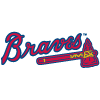 Ronald Acuna Jr., Atlanta: Yes, it's a drop of 0.1 spots. Acuna's recent injury scare didn't see him fall below third in any NFBC draft, and the scare already seems more or less over. The superstar outfielder was scratched last Friday with soreness in the same right knee which suffered a torn ACL in July of 2021. After a visit to Dr. Neal ElAttrache, however, Acuna was diagnosed with nothing worse than irritation in his meniscus. The expectation is that he'll be ready for Opening Day. I'm including Acuna as the faller for this section because this scare still matters, even if he avoided the worst-case scenario or anything close to it. I'll still be ranking Acuna first overall in the next update of our Roundtable Rankings (coming Friday), but if you're someone who skews particularly conservative with your first few picks, I don't think it's out of the question to look elsewhere.
Ronald Acuna Jr., Atlanta: Yes, it's a drop of 0.1 spots. Acuna's recent injury scare didn't see him fall below third in any NFBC draft, and the scare already seems more or less over. The superstar outfielder was scratched last Friday with soreness in the same right knee which suffered a torn ACL in July of 2021. After a visit to Dr. Neal ElAttrache, however, Acuna was diagnosed with nothing worse than irritation in his meniscus. The expectation is that he'll be ready for Opening Day. I'm including Acuna as the faller for this section because this scare still matters, even if he avoided the worst-case scenario or anything close to it. I'll still be ranking Acuna first overall in the next update of our Roundtable Rankings (coming Friday), but if you're someone who skews particularly conservative with your first few picks, I don't think it's out of the question to look elsewhere.
If you're one of those more cautious drafters, wouldn't you typically skip over a player who tore his ACL within the last few seasons and whose knee is already barking this spring? Acuna's injury risk was part of the conversation this time last year, but his 41-homer, 73-steal season hypnotized us all into forgetting about it, making him the unquestioned favorite whose blemishes went almost unmentioned prior to Friday's news. And about that incredible steals total: he achieved it through more through sheer desire to reach an incredible milestone than through elite sprint speed, as his sat in the 67th percentile. Acuna's desire to run could drop significantly this season given that he's no longer chasing a particular plateau and has already been reminded of the need to protect his health. If he steals less than half as many bases as he did less year, i.e. 36 or fewer, it wouldn't be a shock. That alone would bring him much closer to the rest of the top-tier hitters, even if he still leads that group.
Starting Pitcher
| Player | Team | Early ADP | Recent ADP | % Drop |
|---|---|---|---|---|
| Kodai Senga | NYM | 77.0 | 208.0 | 170.2% |
| Kyle Bradish | BAL | 149.8 | 320.9 | 114.3% |
| Shane Baz | TBR | 181.0 | 253.5 | 40.0% |
| Walker Buehler | LAD | 141.2 | 184.0 | 30.3% |
| Justin Verlander | HOU | 121.2 | 154.7 | 27.9% |
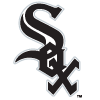 Dylan Cease, White Sox: The five starters on the table above all dropped for injury-related reasons. The same is true for four of the next five falling starting pitchers, with the lone exception being the still-unsigned Blake Snell. You have to get all the way to falling pitcher No. 11 to get to one who's falling simply because drafters don't really like him, and that's Cease. He's gone from 102.4 to 112.4, a 9.9 percent drop. Cease saw his ERA more than double (from 2.20 to 4.58) last season even as his walk and groundball rates remained nearly unchanged. His strikeout rate only fell by three points (from 30.4 percent to 27.3 percent), but that was enough to make a profile which perennially features walk rates around 10 percent fall apart. Some drafters are buying that he could bounce back this season, but the optimism has faded slightly in recent weeks even without any real reason for the change other than perhaps the fact that it doesn't look like he'll be traded to a better team this offseason. The projections don't expect him to get his strikeout gains back, which seems reasonable given that Cease also lost 1.1 mph on his fastball, and they only expect modest improvements in his ERA. Projections there range from 3.90 (ZiPS) to 4.25 (THE BAT), so you'll have to look elsewhere for backing if you remain optimistic.
Dylan Cease, White Sox: The five starters on the table above all dropped for injury-related reasons. The same is true for four of the next five falling starting pitchers, with the lone exception being the still-unsigned Blake Snell. You have to get all the way to falling pitcher No. 11 to get to one who's falling simply because drafters don't really like him, and that's Cease. He's gone from 102.4 to 112.4, a 9.9 percent drop. Cease saw his ERA more than double (from 2.20 to 4.58) last season even as his walk and groundball rates remained nearly unchanged. His strikeout rate only fell by three points (from 30.4 percent to 27.3 percent), but that was enough to make a profile which perennially features walk rates around 10 percent fall apart. Some drafters are buying that he could bounce back this season, but the optimism has faded slightly in recent weeks even without any real reason for the change other than perhaps the fact that it doesn't look like he'll be traded to a better team this offseason. The projections don't expect him to get his strikeout gains back, which seems reasonable given that Cease also lost 1.1 mph on his fastball, and they only expect modest improvements in his ERA. Projections there range from 3.90 (ZiPS) to 4.25 (THE BAT), so you'll have to look elsewhere for backing if you remain optimistic.
Relief Pitcher
| Player | Team | Early ADP | Recent ADP | % Drop |
|---|---|---|---|---|
| Ryan Pressly | HOU | 238.2 | 314.9 | 32.2% |
| Matt Brash | SEA | 275.8 | 338.4 | 22.7% |
| Kenley Jansen | BOS | 138.9 | 155.5 | 11.9% |
| Yennier Cano | BAL | 293.5 | 326.4 | 11.2% |
| David Bednar | PIT | 72.3 | 79.5 | 10.0% |
 Jose Leclerc, Rangers: Two of the players on the table above (Pressly and Cano) saw their team sign a closer, bumping them down the depth chart. The other three, as well as the next two who just missed the table, are dealing with at least minor injury concerns this spring. Leclerc fell eighth-most of all relievers, going from 195.7 to 206.9, a 5.8 percent drop. His team did sign another reliever (David Robertson), but unlike Pressly and Cano, who have gone from apparent closers to mere setup men, Leclerc's exact place on the depth chart wasn't entirely clear on either side of that transaction. Manager Bruce Bochy declined to name a closer at the start of camp, though he did say he hopes one emerges, which means Leclerc seems to be competing for a shot at 30-plus saves rather than a mere committee-leader role. Leclerc finished strong while Robertson didn't and is probably the favorite, though he'll also face competition from Josh Sborz and Kirby Yates. Leclerc may have saved four games in the Rangers' World Series run, but he's also finished with a double-digit walk rate every year and has never saved more than 14 games in a season. Even if he does get the official title at some point in March, there's no guarantee he's still holding the role in June or July.
Jose Leclerc, Rangers: Two of the players on the table above (Pressly and Cano) saw their team sign a closer, bumping them down the depth chart. The other three, as well as the next two who just missed the table, are dealing with at least minor injury concerns this spring. Leclerc fell eighth-most of all relievers, going from 195.7 to 206.9, a 5.8 percent drop. His team did sign another reliever (David Robertson), but unlike Pressly and Cano, who have gone from apparent closers to mere setup men, Leclerc's exact place on the depth chart wasn't entirely clear on either side of that transaction. Manager Bruce Bochy declined to name a closer at the start of camp, though he did say he hopes one emerges, which means Leclerc seems to be competing for a shot at 30-plus saves rather than a mere committee-leader role. Leclerc finished strong while Robertson didn't and is probably the favorite, though he'll also face competition from Josh Sborz and Kirby Yates. Leclerc may have saved four games in the Rangers' World Series run, but he's also finished with a double-digit walk rate every year and has never saved more than 14 games in a season. Even if he does get the official title at some point in March, there's no guarantee he's still holding the role in June or July.







